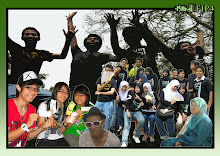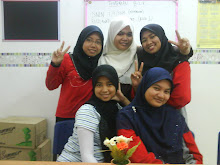In consonance with the National Education Philosophy, science education in Malaysia nurtures a science and technology culture by focusing on the development of individuals who are competitive, dynamic, robust and resilient and able to master scientific knowledge and technological competency.
I. Students must truly understand the meaning of "science" and its importance to society.
The study of science must be well positioned in a broader, humanistic context. I like to call it the "big picture." The big picture should illustrate that science is a basic human endeavor that has left a trail of historical change. Science is full of names, faces, and interesting stories that have affected the growth of civilization. The social and economic ramifications of science are ever present; from miracle drugs to the weapons of war, no life has gone unaffected.
The big picture should also include an understanding of the insights and thought processes that unite scientists in every discipline. All scientists are involved in an organized pursuit of answers to questions about our world. A biologist's questions explore the world from a different angle than a physicist. The differences between biology and physics should be made clear. However, students must absorb that all scientists are compelled by an innate curiosity and desire to comprehend and appreciate their world. This curiosity is present in us all and can "catch fire" with the proper inspiration.
The big picture should also include an understanding of the insights and thought processes that unite scientists in every discipline. All scientists are involved in an organized pursuit of answers to questions about our world. A biologist's questions explore the world from a different angle than a physicist. The differences between biology and physics should be made clear. However, students must absorb that all scientists are compelled by an innate curiosity and desire to comprehend and appreciate their world. This curiosity is present in us all and can "catch fire" with the proper inspiration.
II. Students must experience science in order to understand and develop an appreciation for science.
Students enjoy science when they are given the opportunity to experience it and the guidance to enjoy it. Science is a participatory sport. With the proper framework and coaching, a student can embark on a lifetime of independent thinking and learning.
III. New technologies have made scientists more efficient and productive.
Technology can have the same effect on the teaching of science. Technology has made the secrets of the universe increasingly vulnerable. Scientists have more sensitive tools for data collection, more efficient means of communicating, and access to more information than ever before. These same technologies can provide teachers with exciting opportunities for innovation. These technologies also offer students incredible opportunities for exploration. Exposure to these tools will enhance all facets of the education process.
IV. The key to good science education is knowledgeable, innovative, and energetic teachers.
The best resources available to children will remain effective teachers, both in the classroom and the parents at home. Good teachers transcend textbooks, laserdiscs, and computers. Their knowledge, enthusiasm, and interest in helping children will always shine through any threatening clouds of mediocrity.


.jpg)







0 comments:
Post a Comment